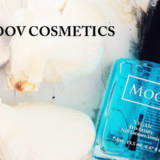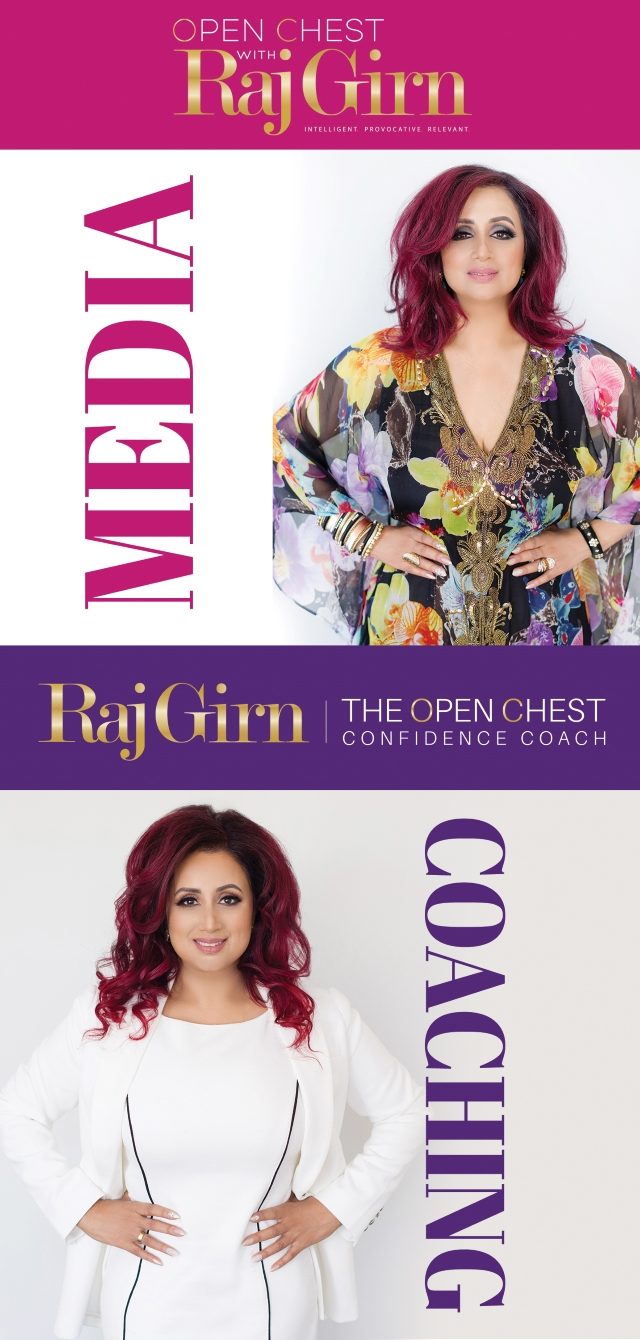
Remember my Open Chest with Kal Penn in the summer 2004 issue of ANOKHI, where we were introduced to a fun, laidback guy on the eve of the release of Harold & Kumar Go To White Castle (2004)? Well, we haven’t revisited this dynamic actor since, so what better time than on the eve of the release of The Namesake, a novel by Pulitzer Prize winner Jhumpa Lahiri, adapted for the big screen by Monsoon Wedding producer/director Mira Nair.
The story traces the life of Gogol Ganguli, a first-generation South Asian American, played by our very own ‘American Desi’ and that of his parents, in a way that will hit home with both South Asian families here and abroad, and families in general around the globe. It is an epic with many universal themes threaded throughout a personal love story about self, life and how it all pieces together. We have all, at some point in our lives, questioned the meaning of family or experienced a struggle with identity and coming into our own.
As one of the most recognizable South Asian faces in Hollywood, Penn, in an exclusive interview with me, talks about his opinions of the movie and himself as an actor, which sheds light on the more serious side of this actor, and indeed, the guy that has become a man.
Read on…

In such a short time of barely seven years, you’ve put together quite the resume with over 14 TV serials and 24 movies to your credit. Care to share how you’ve done so much so soon?
I think it’s a combination of hard work and training, a lot of personal sacrifice, and an even greater amount of good luck. As I’m sure you know, the average life span of a young actor is only a few years, so my hope is to be able to continue working regularly for the rest of my life.
Some of these movies, like Superman Returns (2006), are as big as it’s ever gotten for a South Asian actor. How does it feel to be the one to break past the stereotypical roles that have been the only offerings since you came along?
Superman Returns was something I got through the traditional mechanisms — an aggressive manager, good luck, and a series of meetings and auditions that I must have done well in. As far as breaking the stereotypes, that’s really a question you’re asking the wrong guy. Bryan Singer was the one who cast me in the role. Michael Dougherty and Dan Harris were the ones who wrote the role. Those are the guys who you should ask since they’re the ones who are breaking the stereotypical roles offered to actors.
I will say that my good fortune in being able to work consistently the past three years has had a lot to do with the roles I chose to do. Early on (and still to some extent), I chose to take roles that I found extremely stereotypical or even racist. Van Wilder I was a total stereotype. In my role in Malibu’s Most Wanted, I played a character named “Hadji” (which is a racial slur used against people in the Middle East) and carried a rocket launcher. These are images that deeply contrast with the images I think we need to see in the media. Let me explain it in a way that you can relate to — every role is essentially a job, just like any other. And you cannot be a vice president without working your way up (nepotism aside). The same is true in Hollywood, except the glass ceiling is incredibly low for performers of colour. So had I not worked on “Van Wilder”, I would not have had a credit on a feature studio film on my resume. And without that job on my resume, I would not have been as competitive as a job applicant for “Harold and Kumar go to White Castle”. Without having done Harold and Kumar, I would not have gotten the jobs on Superman, 24, and especially, The Namesake, since Mira agreed to audition me after the insistence of her son Zohran and her agent’s son Bart, both huge Harold and Kumar fans who insisted that she bring me in to audition for The Namesake.
Don’t you think it has a little also to do with the anglicizing of your name?
I am not legally “Kal Penn”, but it is the name I use professionally most of the time. Changing it on my resume had a lot to do with the advice I was getting from friends in the industry who were saying that with an anglicized name, I’d have more auditions. So, I split my first name into two and added an “n” both South Asian and Non-South Asian friends were already calling me “Kal”. I tried out turning “Kalpen” into “Kal Penn” to see if these industry friends were right, and sadly, my auditions went up.
What are your thoughts on other very notable and talented actors out there who started around the time that you started but are still not able to create anywhere near the momentum that you have been able to create in the movie industry?
Entertainment is an insanely competitive industry that is extremely difficult to break into no matter what your background. If you add factors of race, gender, sexuality, disability and financial status, it can be exponentially more difficult to get mainstream roles.
Once you have a mainstream part, there are no guarantees that you’ll get another, and no guarantees that your one role will ever make it past the cutting room floor (take Superman for instance). The questions above explained my personal journey, but that’s just me. You don’t even need to ask me, just turn on the television or go watch a movie — how many South Asian faces do you see? As I’m sure you’re aware, there are hundreds of talented and trained South Asian actors in New York, L.A.,Toronto and Chicago. So, if you don’t see them on screen, what does that mean? That means that there are incredibly limited opportunities for South Asian actors, and a good deal of that limited opportunity is due to factors like racism, nepotism and soon. This is something we can change by encouraging youth to enter fields in the arts as writers and directors, or even producers, casting directors and studio executives.

Do you think breakout movies like Harold and Kumar Go To White Castle (2004), which is the biggest banner movie to date to cast so called ‘ethnic’ actors in non-ethnic roles and as leading men, is going to have an impact on how SA actors are going to be viewed in the future by the execs and decision makers in Hollywood?
I really hope so.
So let’s talk about The Namesake, which is shaping up to be one of the most critically acclaimed movies since Gandhi (1982). How does it feel to be in a movie that has such importance for the SA community?
The importance of The Namesake for me has more to do with playing a dynamic role in a moving story about things as universal as family, love, loss and hope.
It’s interesting to see that you would take on the role of Gogol Ganguli, a role so far removed from anything the public has seen you in before, as we all know you for the numerous commercial comedies you’ve done. Why this role?
Why is it interesting that I’d take on a role like that? I’m an actor, which means I play different roles. I was drawn to The Namesake as a film because I really responded to and connected with the character in the book when I read it a few years ago. I connected with him for the same inexplicable way I connected with Holden Caufield in The Catcher in the Rye. It had very little to do with ethnicity in the case of Gogol and more to do with who he is. It was a great, moving story and one I found important to tell artistically.

How did you bag the role?
I had been calling Mira’s office and having my manager leave her messages nonstop to get an audition. Ultimately, the phone calls were returned because Zohran (Mira’s son) and Sam (Mira’s agent Bart’s son) were huge Harold and Kumar fans who absolutely insisted to their parents that I be brought in to audition for The Namesake. I flew to New York and auditioned finally.
Mira has said that this was a very personal movie for her. How personal was it for you and why?
This was a personal film for me for several reasons. Mirais one of the reasons I am an actor — among other things, her film Mississippi Masala motivated me to pursue this as a career. On top of that, the book upon which the film is based is one of my favourites, and the story is incredibly universal. It’s a story that I think needs to be told.
Assuming that Gogol is probably the closest mirror of you of any character you have played, only in that he has SA parents who were immigrants from India, is also the first generation to be born in the U.S. and has to make a place for himself in both cultures and in the West where he resides, how did you create that line of separation between him and you?
With ANY character, the line of separation is both clear and blurry. In the case of The Namesake, the line is very clear because of Jhumpa’s wonderfully detailed writing. All of Gogol’s intimate details are laid out —everything from where he lost his virginity to his ATM password. It’s rare to have the luxury of all of that information, and since I had this great resource of Jhumpa’s novel to work from, the line was very clear, and the separation between us even more pronounced.
As a first generation Indian American, what parallels do you see that you have with Gogol?
As a human being, I have several parallels with Gogol. Most have nothing to do with being Indian American. Neither he nor I have any sort of identity issues about who we are or what we like. We’re both relatively unique in what makes us tick and what we enjoy (not that we enjoy the same things, but that we approach things in similar ways sometimes). Those are probably the biggest parallels.
Well, I’m an actor and Gogol is an architect. So, automatically the struggles will be different.
What about the much talked about ‘identity crisis’ where two cultures reside in one being? Do you think that it is the existence of the two cultures in one person that causes the ‘crisis’ or the fact that we pit one against the other, thinking that one should win over the other, rather than finding a place were they can coexist?
The character who under goes this in the film is Ashima. Gogol is actually quite comfortable in being the guy he is. His discomfort relative to his name stems from being given the name of a dysfunctional Russian author, not from any absurdity associated with ethnicity or culture. In fact, if you watch carefully, you’ll notice that it’s other people (Maxine, her family, his friends, etc.) who focus on ethnicity when they interact with Gogol but that he very normally responds with human emotion. For example, Moushimi says to him “maybe it’s not enough that we’re both Bengali” and Gogol replies, “that’s not why I love you”.
How have you personally gotten through this ‘crisis’?
I have never had this absurd crisis.
Did examining the interplay between two generations about the different priorities of our parents’ generation who emigrated to the U.S., versus our own, who were born here, give you insight which you didn’t have prior to the movie?
I think the generational difference between Gogol/ his sister and their parents is more central to the other story. Ethnicity does not drive Gogol’s character, nor does it drive mine in real life, so in that sense, yes, our commonality in upbringing was helpful.
What in your opinion does it mean to be an American family? (which is also a central theme of the novel/movie).
To me an “American family” is a family that lives within the United States period. I do not equate nationality and ethnicity, gender, race, sexuality, dis/ability and so on. I think a family is a unit of more than one individual whose bonds are based on love and trust. That’s why I think this film will appeal universally because it deals with those bonds regardless of tertiary items.

What, if anything, would you change about your relationship with your parents, if you had the chance to do things over?
Nothing.
How do you think we can find that place where we can make our parents happy as well as ourselves, because I feel that this is more a universal struggle than a cultural one? What are your thoughts?
I think that probably depends on the individual parent and the individual child.
How do you perceive that we as the first generation could help ease similar struggles for future generations?
Probably by remembering our own experiences and being mindful of them when we’re met with the inevitable intergenerational conflict that we’ll have with our own kids.
For those who haven’t read the novel, what’s the meaning of the title The Namesake?
The title has several meanings, one of which has to do with Gogol (the character’s) name — he’s named after Russian author Nikoli Gogol.
This story is also a universal coming of age story where Gogol stumbles towards becoming a man in his own right. Tell me about this.
Gogol’s life is followed over the course of the film from the time he’s born until the time the story ends. The universality of his life experiences are what make him relatable in my opinion, even if the particulars of his life are different from our own.
The story also deals with the quest for acquiring the ‘American Dream’ — the notion that everyone can achieve everything in America. What’s your opinion of this?
It’s a nice ideal, but obviously one that isn’t true in practice. Our political climate is currently the opposite of encouraging that, as evidenced by an attack on affirmative action, marriage rights for all, health care, public education and so on. We still have a long way to go as a nation if we want (in practice) to live up to the wonderful ideals of the ‘American Dream’.
What was your favourite scene in the movie and why?
I actually don’t have just one. The whole film was one great, moving experience for me.
What do you think our generation is going to get out of watching this movie?
Well, in test screenings people have walked out of theatres crying and clutching cell phones, ready to call parents. I hope this brings families closer together.
In case there’s still someone out there who doesn’t see why this is such a must see movie when it opens in theatres across the world in March, why, in your opinion, should anyone want to watch The Namesake?
I think it’s a universal story. I think if you’re a human being from any walk of life who has felt love or loss, loneliness or comfort, the film will resonate in some way. I just got back from the Dubai International Film Festival and had the chance to speak to a few folks from Palestine and Lebanon who had seen the film. They were crying after the screening, saying that though the story isn’t exactly about those places, since they were refugees due to warand occupation, they can relate to the emotional element so family and disconnection in The Namesake, and ultimately the hope we all have.

What do we have to look forward to from you in the near future?
I’m on a few episodes of the new season of 24. I’m also doing an episode of Law and Order, SVU and will be shooting the Harold and Kumar sequel in January
And finally, how does it feel to be the most recognized South Asian face in Hollywood, second only to Apu of The Simpsons?
I don’t think I’m the most recognized South Asian face in Hollywood. There are quite a few equally recognizable South Asian faces in Hollywood, which I think is a wonderful thing!
First published in the Winter 2006 Issue. www.AnokhiMagazine.com.
Photo Credits:
Photo i, v: Courtesy Jonas PR
Photo ii: Courtesy Mira Nair
Photo iii, iv: Courtesy Abott Gensor
Open Chest is a registered trademark of RG Media Enterprises Inc. All rights reserved








